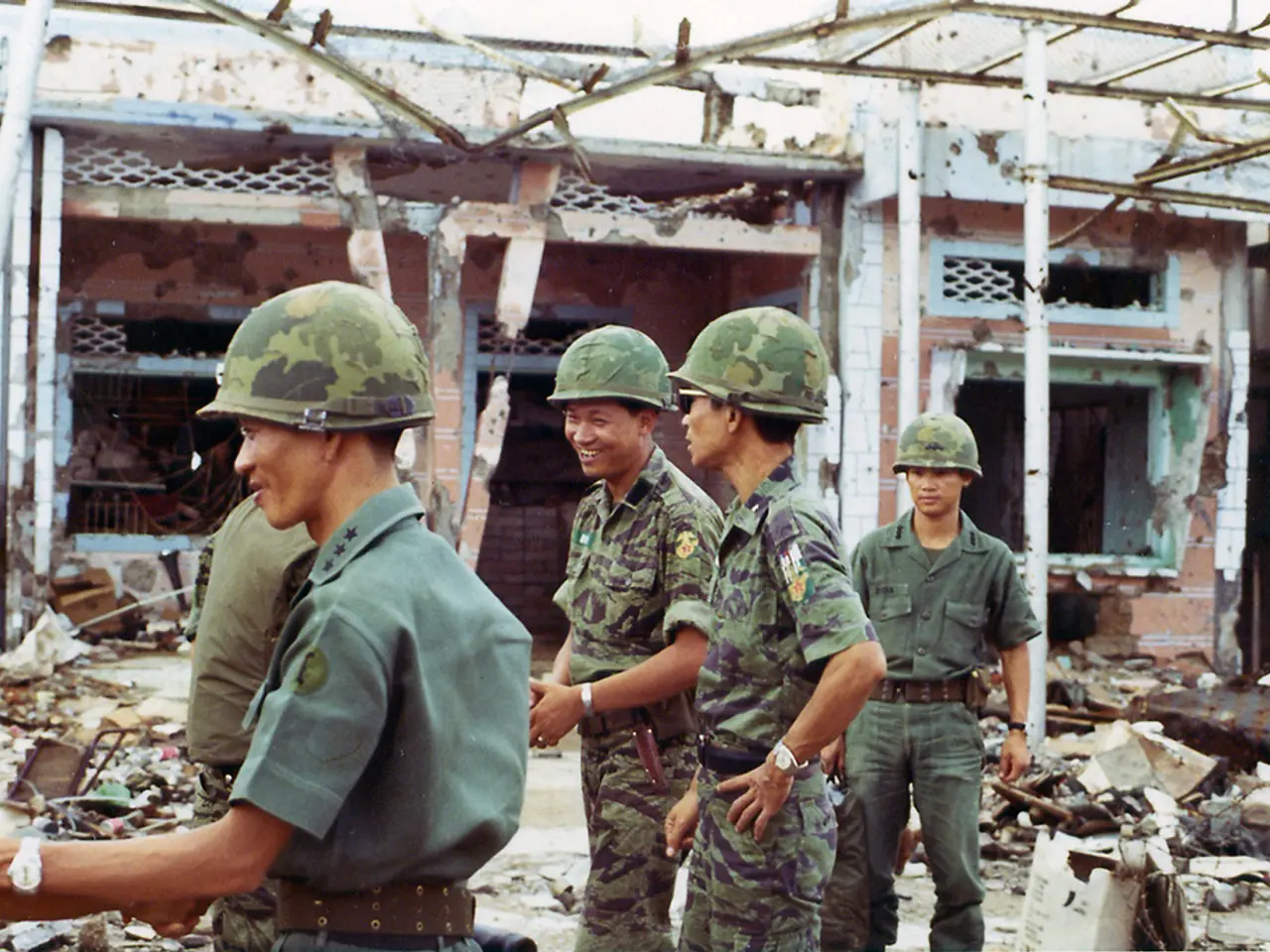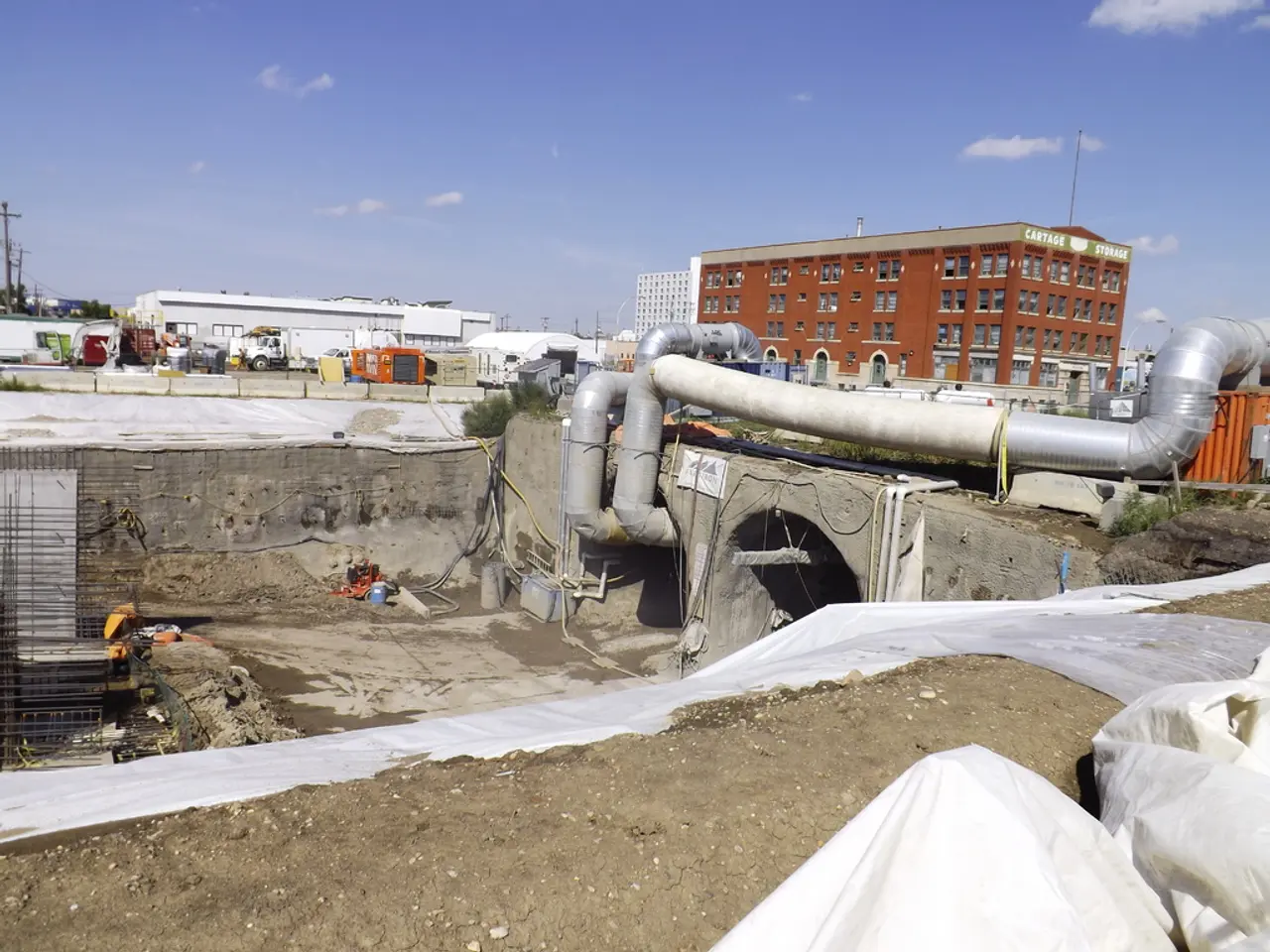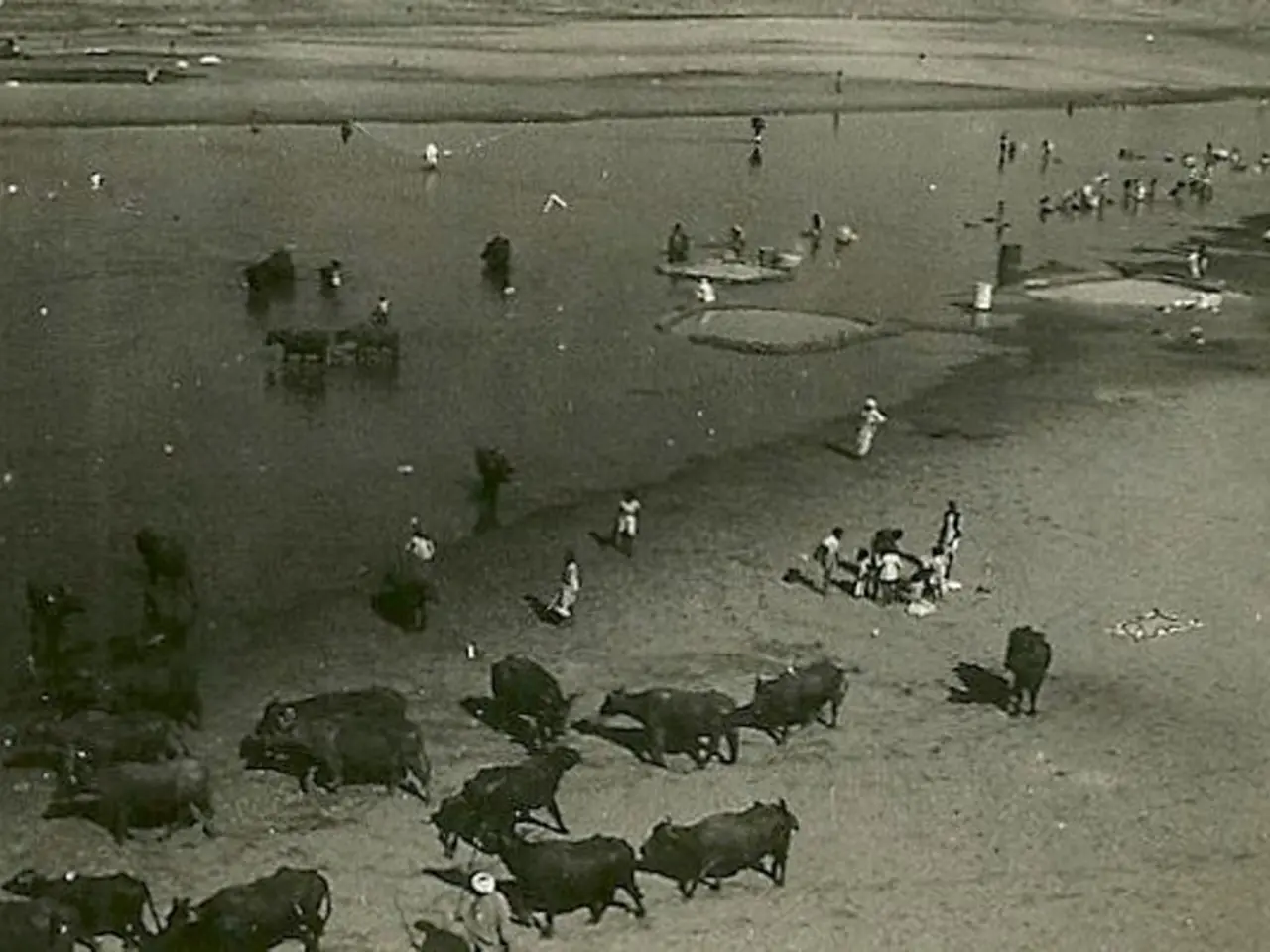Forced Displacement: Israeli actions in the West Bank lead to mass evacuation of Palestinian residences.
In the West Bank, Israeli military operations have intensified, particularly in the cities of Tulkarm and Jenin, allegedly to address flashpoints of militancy[1]. This operation, one of the biggest since the Second Intifada uprising more than 20 years ago, has resulted in a significant human rights crisis.
Over the past few months, Israeli forces have demolished over 100 residential buildings in the Tulkarm refugee camp, displacing more than 40,000 Palestinians since January 2025[2]. The demolitions include 104 buildings slated for destruction in the al-Murabba‘a neighborhood alone, with bulldozers reducing homes to rubble[1][2].
The Israeli Supreme Court initially imposed a freeze on the demolition orders following petitions by Palestinian residents, but an amended ruling now allows the military to proceed with demolitions citing “urgent combat needs or overriding security considerations.” This grants broad discretion to the military and severely weakens judicial oversight, raising concerns over due process and protection of residents’ rights[1].
The displacement has forced families to evacuate with little notice, severely limiting their ability to salvage belongings and compelling displacement under harsh conditions. This results in significant psychological trauma and loss of property, exacerbating the humanitarian crisis in refugee camps already under strain[2].
Malik Lutfi, a 51-year-old father of six, is currently residing in a small room in Tulkarm after his home was demolished by Israeli troops. Lutfi, a resident of Tulkarm, returned to find his home destroyed after a six-month absence[3]. Rebuilding will take a long time, according to Lutfi.
Lutfi's electronic repair shop, located in the cordoned-off Tulkarm refugee camp, has been inaccessible since the home demolitions, leaving him without income. During the home demolitions, he and his family were given only a few moments to salvage belongings[3]. Lutfi knows many families in a worse situation than his, who have been displaced and are living in crowded schools or on farmland.
The Israeli military is following international law and targeting militancy, according to its statement. The Israeli military spokesperson stated that the demolition of buildings is necessary to allow forces to operate freely and move unhindered within the area[4]. However, Shai Parnes, public outreach director at B'Tselem, stated that this includes increased, widespread, and deliberate destruction of homes and civilian infrastructure, and forced displacement of civilians from areas designated by the military as combat zones[1].
The displacement is putting pressure on a community already reeling economically. Kamil, the Palestinian governor, stated that displacement is exacerbating the economic hardship[5]. Displaced Palestinians have protested the demolitions, demanding the right to return and calling for support from Palestinian authorities and UNRWA, the UN agency providing essential services to refugees[6].
Israel, on the other hand, accuses UNRWA of infiltration by terror groups and alleges indoctrination in its schools, complicating international humanitarian efforts[6]. The demolition campaign in Tulkarm is part of a wider Israeli military operation in the West Bank targeting Palestinian camps labeled as strongholds of militant groups. This operation contributes to escalating tensions, displacement, and potential violations of international humanitarian law concerning the protection of civilians and property in occupied territories[2][3].
In summary, the home demolitions in Tulkarm raise critical human rights issues, including forced displacement, destruction of civilian property without adequate legal safeguards, and severe humanitarian consequences for thousands of Palestinians in the refugee camps. The weakening of judicial oversight and military discretion to demolish homes under security pretexts compound these concerns, drawing protests and calls for international intervention[1][2][3][4].
References: [1] Haaretz (2025). Israeli Supreme Court lifts freeze on West Bank demolitions. Retrieved from https://www.haaretz.com/israel-news/.premium-israeli-supreme-court-lifts-freeze-on-west-bank-demolitions-1.9521989 [2] Al Jazeera (2025). Israel demolishes homes in Tulkarm refugee camp. Retrieved from https://www.aljazeera.com/news/2025/3/1/israel-demolishes-homes-in-tulkarm-refugee-camp [3] The New York Times (2025). Tulkarm Refugee Camp: A Human Rights Crisis in the West Bank. Retrieved from https://www.nytimes.com/2025/03/01/world/middleeast/tulkarm-refugee-camp-human-rights-crisis.html [4] Times of Israel (2025). IDF: Tulkarm demolitions necessary for military operations. Retrieved from https://www.timesofisrael.com/idf-tulkarm-demolitions-necessary-for-military-operations/ [5] Middle East Eye (2025). Tulkarm governor: Israeli demolitions are putting pressure on a community already reeling economically. Retrieved from https://www.middleeasteye.net/news/tulkarm-governor-israeli-demolitions-putting-pressure-community-already-reeling-economically [6] The Electronic Intifada (2025). Israel's demolition campaign in Tulkarm is part of a wider offensive on Palestinian camps. Retrieved from https://electronicintifada.net/content/israels-demolition-campaign-tulkarm-part-wider-offensive-palestinian-camps/27639
- Amidst the ongoing political turmoil in the Middle East, the East has seen an escalation in news regarding the displacement of thousands of Palestinians in Tulkarm following Israel's demolition of over 100 residential buildings.
- This significant event, marked by the destruction of civilian homes and infrastructure under broad military discretion, has raised concerns within the general-news and crime-and-justice sectors, especially given the alleged violation of international humanitarian law.
- Artistic expressions of solidarity, protesting these acts, have been noticeable in various parts of the world, serving as a poignant reminder of the ongoing human rights crisis in the Middle East.








